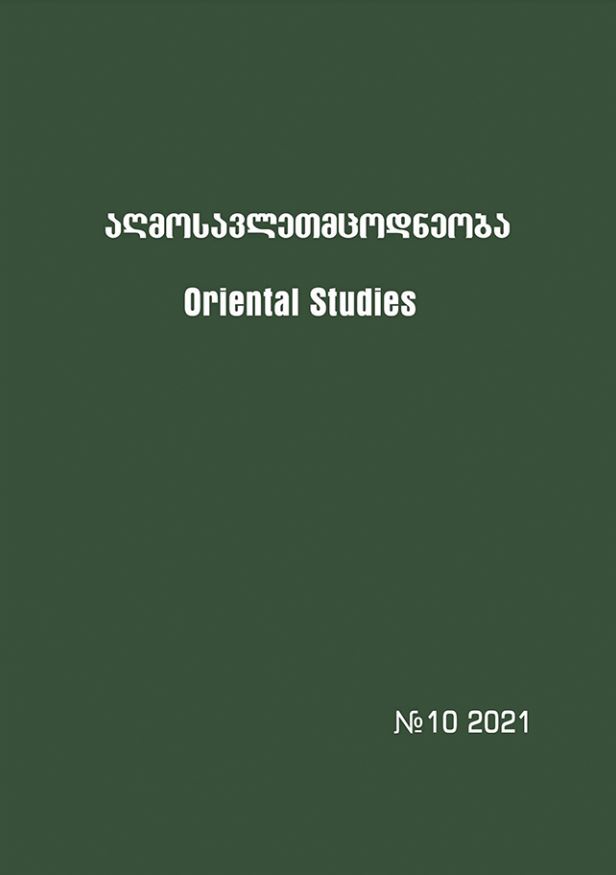გაგრძელება იქნება? (ფარიბა ვაფის რომანი "დასასრულის შემდეგ")
Main Article Content
ანოტაცია
A Georgian translation of Fariba Vafi’s novel “After the End” has recently been published („Intelekti“, 2021, translated by Mzia Burjanadze). Currently, Fariba Vafi is considered one of the most popular and outstanding writers in Iran. Her novels and collections of stories have been awarded numerous prizes. In 2017, the German translation of Vafi’s novel “Tarlan” was awarded “Liberatur” prize in Frankfurt. Up to this day, Fariba Vafi has published seven novels and five collections of short stories. “After the End”, which was published in 2013 in Iran, has been translated only into Georgian so far. The novel is a contemporary version of ancient genres of travel and conversation, which used to be extremely popular and organic to old Persian literature.
The dialogues and monologues, situational images, the so-called “flashbacks~ – serve concrete purposes. The narration, which is simple at a glance, introduces acute social problems by means of flashbacks: the issue of gender and stages of its evolution, tragic events of the period of Islamic Revolution, destruction of human lives, physical and psychological pressure, the hardship of emigration and related spiritual pain, the abyss between the emigrants and those who have stayed in the country; the sense of slavery, which has been fixed solidly in the mentality and turned into a permanent complex, despite the change in legislation and granted freedom...
Manzar, who has arrived on a brief visit to Iran, and her hostess Roya, travel from Tehran to Tabriz. During the several days of their journey, we observe two positions, two viewpoints, two attitudes to the world, people and problems.
The writer addresses different topics, but her focus is always on love and its diverse forms: the love between mother and child, husband and wife, sisters, sister and brother, friends, lovers, the love of motherland, nature, beauty and kindness... In this regard, Vafi’s works constantly seek the sense of life, the function of a human being in the endless universe. According to the writer, the source of human life and its driving force is love. She contemplates on the question: what has created love and what has made love as it is? Why has love disappeared and why human soul has become so harsh? And, what is most important, what is the role and responsibility of a human being in this process?
Together with the protagonists, the reader comes across the structures and institutions that destroy human relationships: patriarchal traditions, deeply rooted customs and traditions, local or global cataclysms, violence, psychological barriers and numerous other obstacles.
The novel embraces several key issues. One of the main characters, Manzar, internally opposes the end of these issues, because all of them are connected with love. In my opinion, the title of the novel is interesting in this respect, because it reflects the author’s “concept of love“.
Manzar thinks that “everything will end with her”. While a person is alive and has the faculty of love, there is no end. It is quite possible that there will be a continuation after the end.
The novel is open-ended. We do not know how the relationships will continue in the future which, thanks to the efforts of people like Manzar, may follow any end!
Fariba Vafi never says anything categorically. For her, life, individual human beings and their relationships are complicated phenomena. Thus, she never tries to be categorical about anything or anyone. The writer always grants the freedom of choice to her characters as well as the reader.
